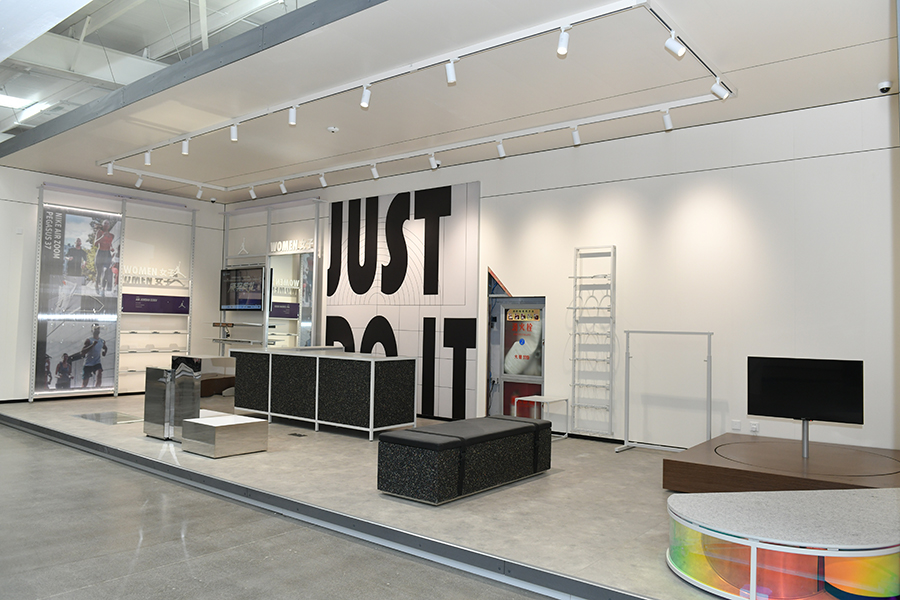Dez . 04, 2024 22:26 Back to list
cash desk
The Evolution and Importance of the Cash Desk in Modern Retail
In the ever-evolving landscape of retail, the cash desk, or point of sale (POS) system, continues to play a pivotal role in the customer experience. Traditionally, the cash desk served as the final destination for customers—where they exchanged their hard-earned money for goods and services. However, over the years, the function and design of the cash desk have undergone significant transformations, reflecting changes in technology, consumer behavior, and retail strategies.
Historically, the cash desk was a simple wooden counter with a cash register, where a cashier would manually process transactions. This setup required basic arithmetic skills and customer service abilities. Cashiers were not only responsible for handling money but were also the key point of contact between the retailer and the customers. Their roles demanded professionalism, promptness, and an amiable demeanor. As societies became more consumer-centric, the importance of this role became even more pronounced; the cash desk evolved into a strategic point for enhancing customer satisfaction.
With the advent of technology, the cash desk has evolved dramatically. The introduction of computerized systems has streamlined operations, allowing for quicker transactions. Scanners eliminate the need for manual entry of product codes, while digital registers automatically calculate totals, taxes, and discounts. This efficiency reduces waiting times, significantly improving the customer experience. Additionally, modern POS systems can gather valuable data on purchasing patterns and inventory levels, enabling retailers to make informed decisions about product offerings and marketing strategies.
Moreover, the design of the cash desk has also changed. Contemporary retail environments often favor sleek, minimalist designs that blend seamlessly with overall store aesthetics. The cash desk is no longer just a transaction point; it has become a design element that enhances the brand’s identity. Retailers now focus on creating a welcoming atmosphere around the cash desk, often integrating comfortable seating areas, promotional displays, and even digital screens showcasing special offers or advertisements. Such strategic placements not only encourage impulse buying but also foster customer loyalty.
cash desk

The rise of omnichannel retailing—where customers can shop seamlessly across various platforms—has further transformed the role of the cash desk. Today’s consumers expect flexibility; they want the option to purchase items in-store, online, or through mobile apps, and still have a coherent experience. As a result, many retail environments have adapted their cash desk functionalities to accommodate these preferences. For example, “click and collect” services allow customers to order products online and pick them up at the store, often directly at the cash desk, which streamlines operations and enhances customer convenience.
The importance of the cash desk also extends to customer relationship management. With advances in technology, cash desks can now support loyalty programs, gift cards, and personalized promotions. Cashiers equipped with tablets can access customers’ profiles, allowing them to provide tailored recommendations based on past purchases. This level of personalization not only improves the shopping experience but also fosters a sense of connection between the retailer and the customer.
However, the role of the cash desk is not without challenges. As self-service kiosks and mobile payment solutions gain popularity, the traditional cash desk may face a decline in customer interaction. Retailers must navigate this shift by finding the right balance between technology and human service. While automation can enhance efficiency, the human touch remains crucial in building relationships and providing exceptional customer service.
In conclusion, the cash desk has evolved from a simple transactional point to a multifaceted hub that influences customer experience, brand identity, and operational efficiency. As technology continues to advance and consumer preferences shift, the cash desk will likely undergo further transformations. Retailers who adapt to these changes while maintaining a focus on customer service will thrive in an increasingly competitive landscape. Ultimately, the cash desk stands not just as a place where money exchanges hands, but as a vital component of the retail ecosystem that reflects the convergence of commerce, technology, and human interaction.
-
The Benefits of Electronic Shelf Labels for Modern Stores
NewsJul.01,2025
-
Space-Saving Retail Store Furniture Designs for Small Shops
NewsJul.01,2025
-
Slatwall vs. Gridwall: Which Store Fixture is Right for Your Business?
NewsJul.01,2025
-
Shop Fittings: Essential Elements for a Functional Retail Space
NewsJul.01,2025
-
How to Design a Minimalist Cosmetic Shop Display
NewsJul.01,2025
-
Creative Clothes Shop Display Ideas to Attract More Customers
NewsJul.01,2025


















































































































